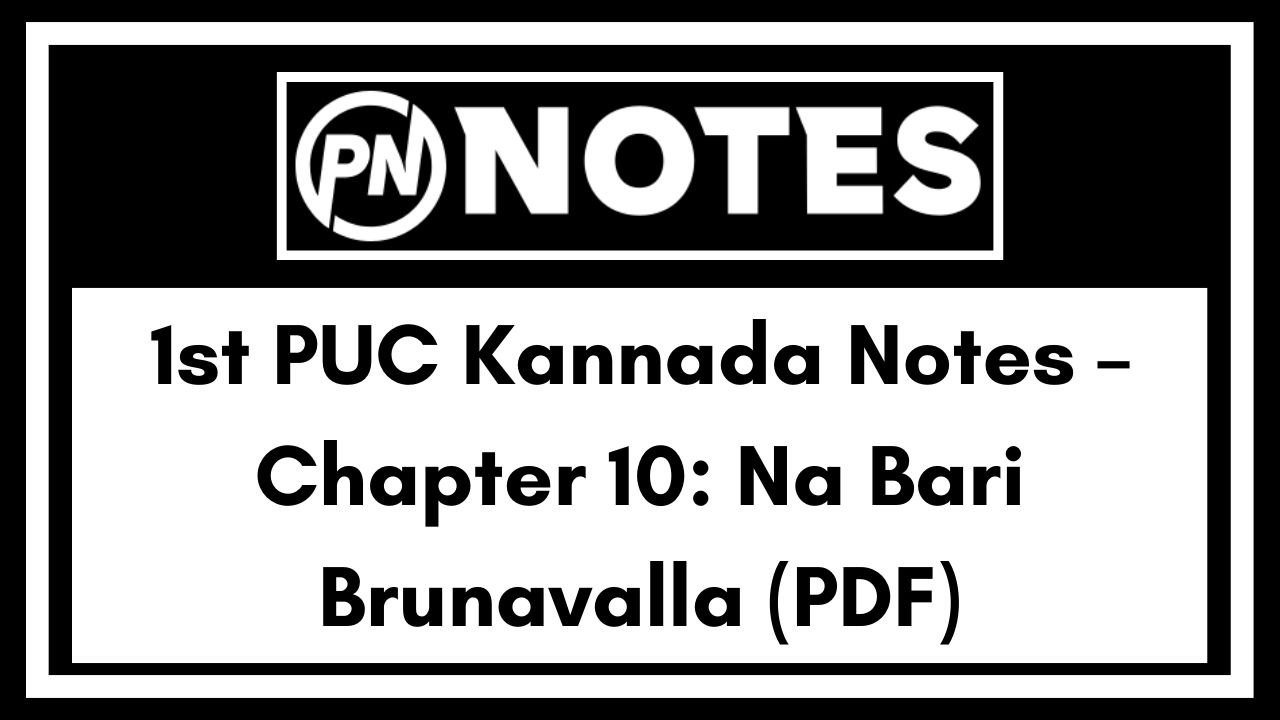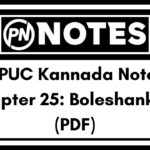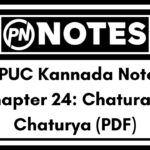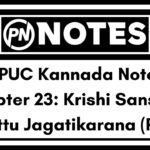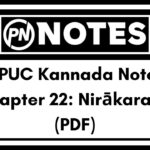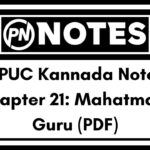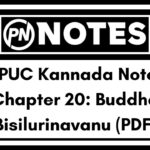Welcome to a different informative submit in our 1st PUC Kannada Notes collection. On this submit, we’ll talk about Chapter 10: Na Bari Brunavalla, a poem that superbly explores themes of self-realization, human wrestle, and the seek for which means in life.
This thought-provoking work, penned by Kuvempu, addresses the complexities of human existence and the search for happiness and success. The poem captures the essence of searching for the reality and understanding one’s goal in life.
Chapter Overview: Na Bari Brunavalla
“Na Bari Brunavalla” interprets to “I Will Not Be a Burden”. The poem displays a robust want for independence, self-worth, and a lifetime of dignity. It speaks to the human spirit’s drive to keep away from dependency on others and the significance of contributing positively to society.
On this poem, the speaker expresses a deep sense of pleasure and accountability, emphasizing that one should not reside life as a burden on others. The poem encourages people to take possession of their lives, make their very own choices, and attempt for self-sufficiency and private development.
Central Message of the Poem
- Self-reliance is a key worth; one shouldn’t be a burden to others.
- It’s important to take accountability for one’s actions and life.
- The poem emphasizes the significance of private development and dignity within the face of adversity.
- Independence and self-respect needs to be cherished above all.
Key Lines & Meaning
“Na bari brunavalla, jiva dhara, samruddhi”
– Which means: I cannot be a burden, for all times’s river is a stream of prosperity.
This line displays the poet’s perception within the significance of residing a life filled with dignity and self-sufficiency. It emphasizes that life is supposed to be lived with goal, and one mustn’t rely on others however as a substitute contribute to society’s progress.
“Aakasha hosa kanasu, gatiya haadi”
– Which means: The sky holds a brand new dream, the trail is one in every of progress.
This line encourages readers to dream massive and pursue their objectives with a way of optimism and willpower. It symbolizes the limitless potential that life holds when one chooses to take cost of their future.
Why These Notes Are Important
These 1st PUC Kannada Notes are important for:
- Understanding the poem’s emphasis on self-sufficiency, dignity, and private accountability.
- Being ready for short-answer and long-answer questions that ask you to clarify the importance of the poet’s name for independence.
- Gaining perception into the poet’s philosophy of private development and self-reliance as central values.
- Making ready for any discussions concerning the poet’s use of metaphors and imagery in conveying deep philosophical concepts.
Exam Preparation Tips for This Chapter
- Give attention to the theme of self-reliance and the way the poet highlights the significance of independence and dignity.
- Memorize key strains and clarify their which means, particularly how the metaphor of life as a stream of prosperity is used to convey the concept of self-sufficiency.
- Be prepared to debate the poet’s use of optimistic imagery, such because the “new dream” within the sky, and the way it encourages perseverance.
- Observe writing about how the message of the poem applies to real-life conditions, significantly when it comes to private accountability.
Final Thoughts
Na Bari Brunavalla is a motivational and philosophical poem that encourages readers to take management of their very own future and reside a lifetime of independence and self-respect. These 1st PUC Kannada Notes will allow you to perceive the deeper meanings behind the poem’s name for private development and self-sufficiency.
More Resources:-
